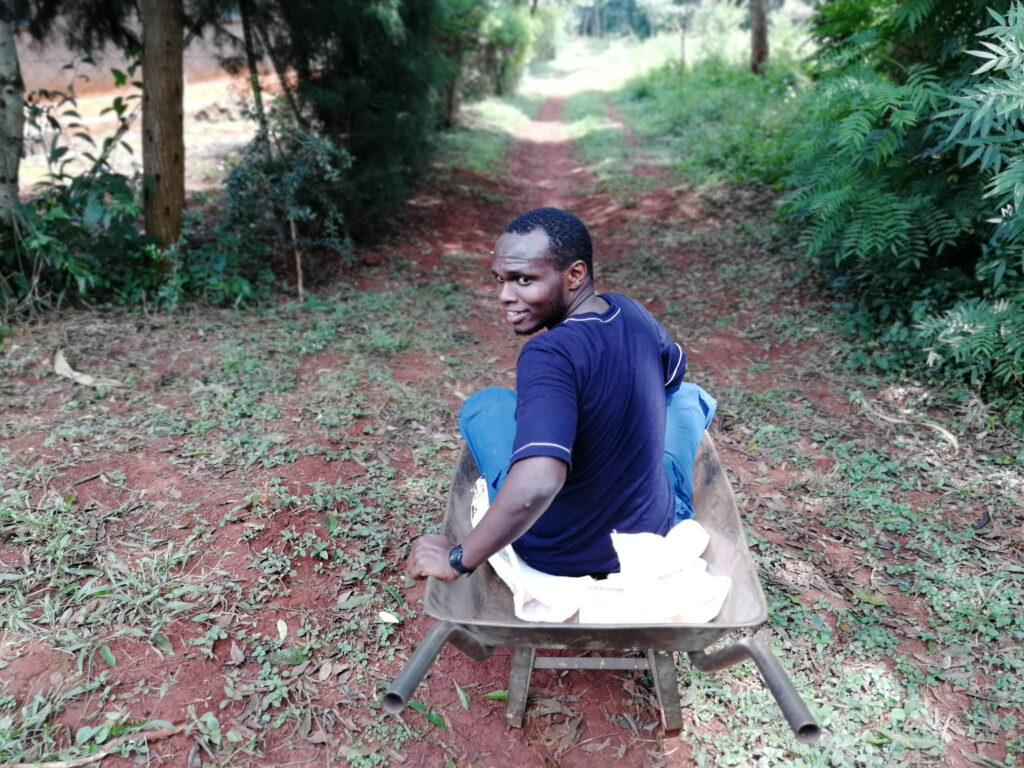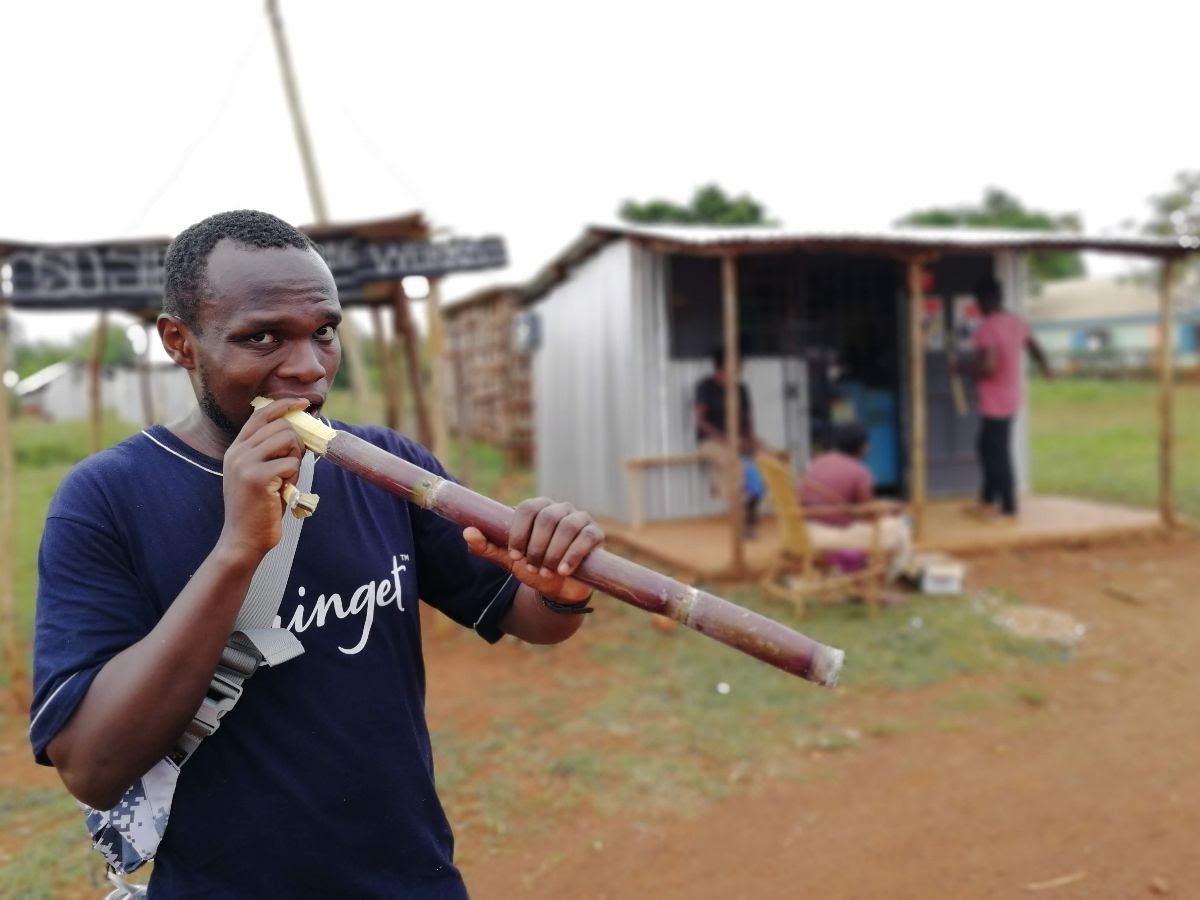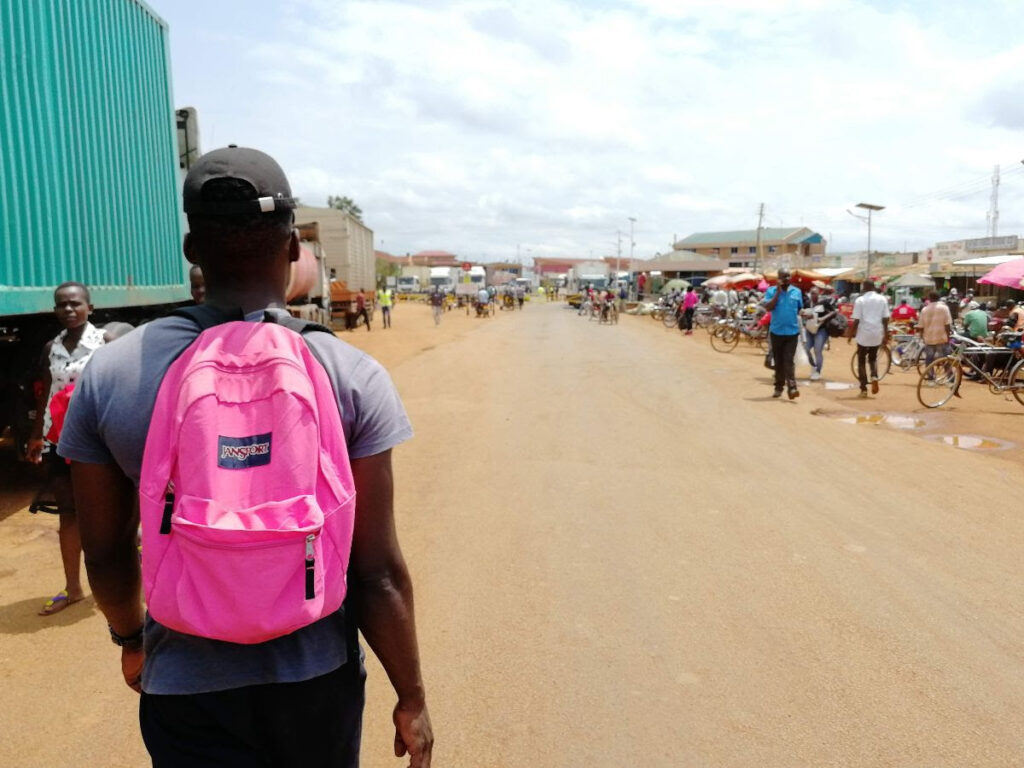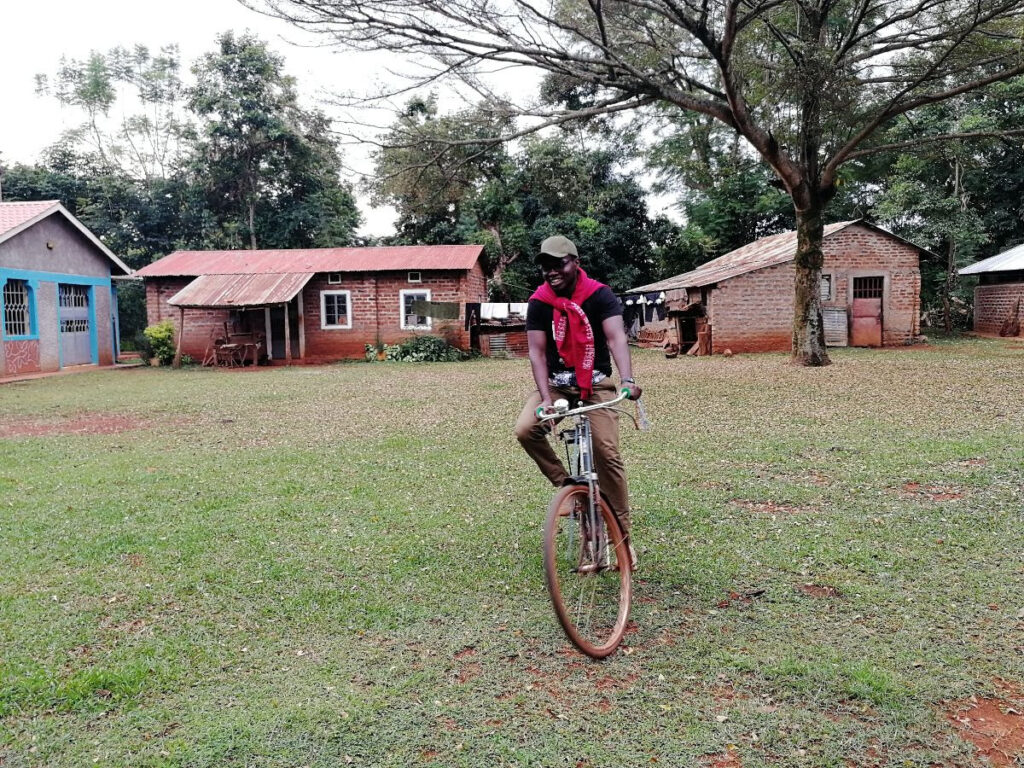Last weekend I was in a village near the Kenya-Uganda border.
It was great fun. Here’s an overview of what we got up to (with plenty of pics).
A weekend in the making
When I first arrived in Nairobi in 2016 I soon made friends with the Shiundus.
Their eldest daughter (Tracey) was getting married to my (then new) friend Sam. When Sam and I would hang out, we’d often go around to Tracey’s family home where I’d sometimes help out in the kitchen.
In February 2017, in the run-up to the wedding, I wrote about them here.
Tracey’s Dad was keen to “one day” show me an experience of what life is like in the village they’re from, and with the end date for Kenya looming, we arranged a weekend to make it happen.
He, unfortunately, couldn’t make it, but meticulously arranged an itinerary for me, Sam (aka Kamande) and Tracey’s brother Pius to spend the weekend there.
Bumala, Western Kenya
The Shiundus are from near the Kenya-Uganda border.

The village is a couple of kilometres from the main road from Nairobi to Uganda meaning we were able to take a bus directly from Nairobi to the town of Bumala.
It was ~9 hours overnight, so nothing much to report on.
Upon arrival to the town Kamande and I checked in to our hotel and Pius headed to the home. After a few hours rest, we reconvened.
Shucking maize in the field
Kamande and I headed over to the homestead and were greeted by Tracey’s Mum, who arrived the day earlier to oversee weekend operations.
After some breakfast of eggs and arrow root it was time for the first activity: harvesting maize.
The Shiundus own a few acres of land, a couple of which they live on, and the rest is used for growing crops.
We were travelling around the time that maize was to harvested and so Sam, Pius and I walked over to the field where some of the local workers were already collecting the maize.
The process was relatively simple: walk in a straight line and unpeel (i.e. shuck) every piece of maize you see.
We each took our starting point and would ̶t̶h̶r̶o̶w̶ place the cob carefully in one of the buckets. When the bucket got full, it was transferred to the gathering big pile.
After an hour or so, with the help of a 5 year old living at the Shiundus (unclear what the formal relationship was, maybe a cousin?), the field was de-maized





Next job was to transfer the maize mound back to the store at the homestead (“boma”). A wheelbarrow was brought down and we took turns to shift the maize with this, or heavy bags on our shoulder.
The process now was for the maize to dry out for a couple of weeks before having the kernels removed and then be ground up into unga (flour) to be eaten over the coming weeks/ months.
Childhood regression #1: wheelbarrows
Once the maize was stored up we had to return the wheelbarrows back to the store.
Being back in “the village” stirred up all kinds of childhood memories for Kamande, such as when he and his friends would race in wheelbarrows.
Naturally, we had to try this out too and soon found ourselves traversing the dirt paths with one or other in the front.

When the wheelbarrows were back, we resumed adulthood and went inside for a cup of tea and spoke with Tracey’s Great Aunt who lives nearby and came to see the visitors.
She was very excited to see pictures of Sam and Tracey’s 5 month old son, and also (aged 80+) had the best straight back posture I’ve ever seen.
A sweet stroll
By now it was about 2pm and we decided to go for a little explore of the area.
Pius led the way pointing out various tree types and crops being grown (we had a good game of guessing whether a tree was avocado or mango).
The small forest they have includes a diversity of trees which I imagine is not unrelated with the large number of butterflies fluttering past us.
Some of the trees are “hardwood” and, if chopped down, can reach $500 if ever the family need to get some cash.
We passed some other fields and sat out listening to the birds before reaching the asphalt road and deciding to walk up it until we got bored.
Kamande had some calls to take, and so we continued to wander, passing a guy making bricks from dirt in the ground.
Feeling a lull in the early afternoon heat we spotted a kiosk where we could go for a soda and a sit down.
Unsatiated by the 41% RDA in our drinks we crossed the road, sidestepping a congregation exiting the church, and set sights on the sugar cane.




Childhood regression #2: sugar cane
Growing up in Kenya, Kamande told me, there are certain treats one remembers vividly.
A big one was when sugar cane comes to harvest and being able to chew/ suck on the juice.
Next to the church were some ladies selling a Gandalf-wizards-staff’s worth of sugar which they dutifully chopped into three for Sam, Pius and myself.
We said our thanks, and headed back along the road to the boma, sugar cane in hand.
The way to enjoy it is (in theory at least) easy: peel off the outer skin, bite into the cane, chew/ suck the juice, discard once dry.
In practice, there was a clear hierarchy in skills.



Kamande effortlessly nibbled on his portion whereas I was left with sticky sugar juice rolling down by arm and most of my face.
Upon returning home ̶w̶e̶ I had a thorough wash before we sat down to some nuts, and then dinner, then back to the hotel.
A failed attempt to get to Uganda
The next morning was relatively slow – Kamande and I having a meandering conversation over the hotel’s tasty, but somewhat uninspiring complimentary breakfast.
We reconvened with Pius, had a wander around Bumala town and then took a matatu (minibus) to the border town of Busia which was about 30 minutes away.
When there we walked some more and thought we’d have a go at getting to Uganda.
Stupidly, I’d left my passport at home and so despite a conversation with both immigration desks about how we just wanted to go to the market across the border, we were denied.
Seeing the streams of people passing back and forth, it seemed clear that it would be possible for Pius and Kamande to just go walking, but neither were too enthralled by the idea.
We said goodbye to the framed picture of Museveni (Ugandan President) up on the wall and returned to Kenya.

Saturday afternoon in Busia
Back on familiar territory Kamande and I bought a bountiful banana each (Pius doesn’t like them) and sought out somewhere to watch the Australia – New Zealand rugby game.
Placing our bets on the biggest hotel in sight we went in and were soon sat down in front of South African presenters talking about sports though, alas, it was all in preparation for the new (football) Premier League season.
We stayed for the first half of West Ham vs Man City and then went in search of a pharmacy: I’d been bitten by a mosquito the night before and wanted to take some anti-malarials, just as a precaution.
After encountering a perplexingly convoluted of system of queuing up and handing bits of paper to three separate people sat within a couple of metres of each other we were back at the road and aboard a matatu back to Bumala.
Once arrived we picked up some omena (small fish) and then took another route out of the market passing the busy Saturday afternoon traders.



Stay out of the kitchen!
One of the traditions in Kenya (or at least in Tracey’s family) is that there are certain things which Sam (her husband) should/ shouldn’t be allowed to do.
It’s all practical (I think), though it can be a little jarring when, for example, he reveals that he’s not allowed to use the back door to the house.
The idea is that he is still a guest of the family, and so there are particular polite formalities that should be adhered to.
Another is that he is not allowed in the kitchen (I was, however), and that’s also why he and I were at a hotel, rather than staying in the homestead. Were he with Tracey then (I think) that would be fine, and also if Pius (the eldest son) had his own house on the homestead then, as his guest, we could have stayed with him.
Anyway, all this is to say I cleared up Kamande’s dishes after dinner and saw him out front.
Childhood regression #3: riding bikes
Around the village we’d seen various people gliding past on these chunky, heavy frame bikes.
Kamande was, again, getting a stir of nostalgia.
To prevent him seeming too forward I asked whether it would be possible to see the Shiundu’s bike and after a couple of minutes riding around in circles, let Sam have a go which he did for the next hour.

In the early evening light he showed us the various tricks he and his friends used to do as friends, such as giving each other rides on the back seat.
We also got a chronological tour of how a child rides a big bike depending on their height. This consisted of “half pedalling”, hovering over the frame, and then finally graduating to the full seated position.
One perplexing stage in the progression was to ride the bike crouched down between the frame hanging off one side with arms in the air. Pius and I were dubious, though to his credit, Kamande showed us how it was done.

Saying goodbye
With play time over we again went inside for dinner, enjoying a table full of delicious home grown food.
Tracey’s mum headed to get her night bus back to Nairobi (she was needed at church in the morning) and Sam and I went back to the hotel.
Sunday was spent from 9am-8pm on a bus traversing the western side of the country. I listened to innumerate podcasts and gazed out the window at Kenya passing by, feeling that one thing I’ll miss from living here is the amount of “life” going on so close to the roadside.
We were back in Nairobi by nightfall and said our goodbyes and thank yous before separately heading back to our respective homes.
In other news…
Of all the links last week, the one about the 10 Universal Laws of the World was most popular. I’m not sure what that says about everyone, but I think that’s a good thing..!
This post originally featured in the newsletter I write. If you’d like to sign up to receive it at the start of each month, you can do so below: